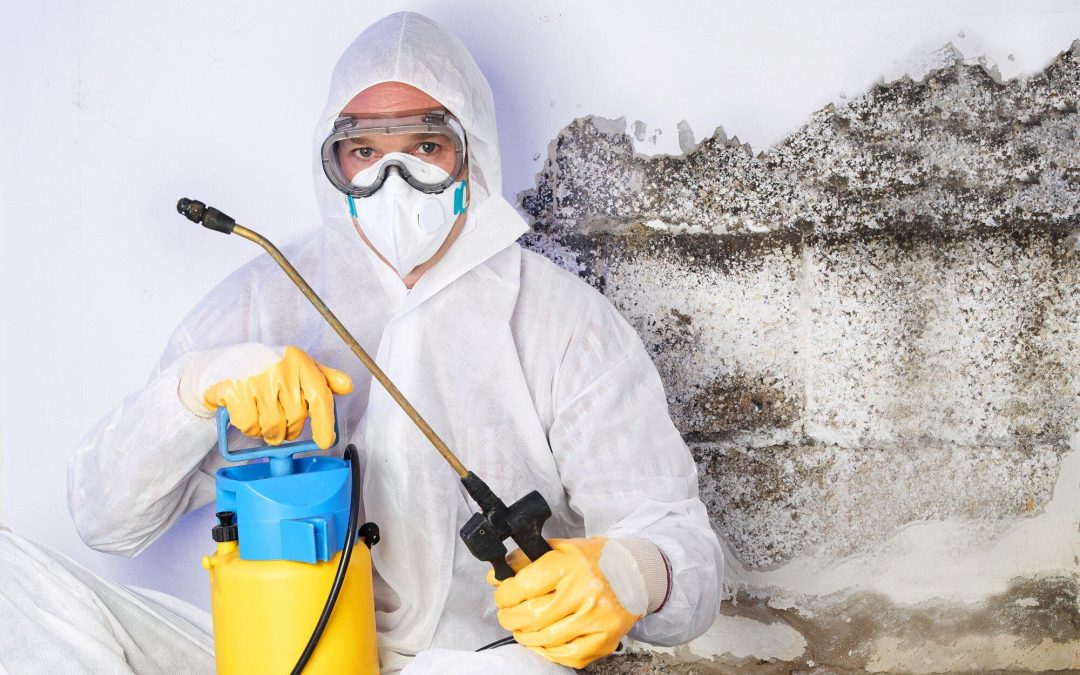Mold is a hidden danger for many Florida homeowners. According to the U.S. Environmental Protection Agency (EPA), mold growth covering 10 square feet or more should be handled by a professional.
So, what are the dangers of mold spores, and can mold cause headaches or vomiting?
Read on to learn more about the signs and symptoms of mold and what you can do to correct the problem.
Allergic Reactions
Mold spores can spread rapidly in a moist or humid environment. Once the spores start spreading, they can enter the air and create a variety of potentially serious allergic reactions.
If the spores are inhaled or touched, some people could experience hay fever-like symptoms. Some of these symptoms may include red eyes, runny nose, sneezing, or skin rashes and itchiness.
While not everyone is allergic to mold, these reactions are quite common and could remain dormant for some time, or they may be immediate. People with asthma tend to experience severe asthma attacks if they are exposed to mold.
Mold exposure can irritate the skin, nose, throat, eyes, and lungs, even if you’re not allergic. If you notice that you’re suddenly experiencing any of these symptoms, it’s a good idea to get a professional mold inspection as soon as possible.
Upper respiratory symptoms are common in people who have been exposed to mold. Look for things like frequent coughing, wheezing, or shortness of breath which may indicate that there is mold in your home, school, or workplace.
Can Mold Cause Headaches?
Aside from allergic reactions, can mold cause headaches? Frequent or ongoing exposure to mold spores can not only cause headaches, but it can also cause extremely painful migraines.
If you notice that you’re getting headaches whenever you’re in a certain place (such as your own home), but then they go away when you leave, mold could be present. Increasing frequency or intensity of headaches is another red flag that there could be mold in the environment.
Over time, mold toxicity can cause a plethora of potentially serious health problems. Aside from headaches or migraines, some people also experience extreme fatigue.
Symptoms like dizziness, tiredness, or general weakness can indicate that there is a mold problem. If you notice these symptoms becoming more frequent, consider mold testing to confirm. Fatigue may be a result of low oxygen intake when mold spores move through the lungs and nasal passages.
People with a suppressed immune system, cancer patients, and HIV patients are particularly vulnerable to mold toxicity. Children and the elderly are also at higher risk of experiencing mold-related health problems.
Mood and Cognitive Function Issues
Mold exposure can also affect your mood and cognitive function. If you start to notice increasing instances of brain fog, poor memory, or anxiety, then it could be a result of mold exposure.
Some people have reported that they have difficulty concentrating or remembering specific details. Once these patients had mold inspections done, they discovered that mold was present, which was likely causing the cognitive problems.
While mold can affect your brain’s ability to function at full capacity, it can also affect your mood. Too much exposure to mold can create a myriad of other problems like depression and anxiety.
There is some evidence that mold interferes with the production of certain chemicals in the brain like serotonin and dopamine. These chemicals affect your mood, which means that mold exposure might lead to emotional and mental health problems including but not limited to insomnia, depression, and anxiety.
Mold and Other Physical Problems
Not only does mold have the potential to cause headaches and respiratory issues, but it can also affect the gastrointestinal system. Some people experience abdominal pain, nausea, diarrhea, and vomiting. In more extreme cases, people could experience intestinal bleeding as a result of mold toxicity.
While this side effect is more commonly associated with mold in food, it can also be associated with environmental mold exposure. Ingesting food contaminated with mold can cause serious health problems later down the line if it’s not addressed.
Mold toxicity may also cause joint stiffness, aches, and pains. A condition called fungal arthritis is associated with mold exposure. Numbness or tingling in the body can also be a side effect of exposure to mold spores.
How to Prevent Mold in Your Home
When it comes to mold exposure, prevention is key. Aside from getting mold testing done or ordering mold inspections, there are some things you can do yourself to be proactive.
Start by inspecting your Florida home for any signs of water damage as often as possible. Look under sinks, toilets, and appliances, and check the plumbing to ensure there are no leaks present.
Inspect the basement to make sure there is no standing water. If you find a leak or notice any signs of water, it’s vital to get these issues fixed as soon as possible and remove any water-damaged materials.
It’s important to control the humidity levels in your home since mold thrives in a humid environment. Ideally, the indoor humidity should be somewhere between 30 to 50 percent.
Practice Smart Mold Prevention
Water damage is a major contributor to mold growth. If your home is flooded, make sure that you clean and dry everything quickly and thoroughly. Standing water or wet materials can cause mold spores to increase at a rapid pace.
As a rule of thumb, assume that mold is present in any areas that have been wet for 24 to 48 hours. It’s recommended that you remove all wet materials rather than waiting to test them.
Another way to prevent mold is to make sure your laundry room, bathroom, and kitchen are well-ventilated. Open a window or use a fan to ensure that these areas stay ventilated, cool, and dry.
Stay Safe with Mold Inspections
Can mold cause headaches? Yes, and it can cause a wide range of other serious health problems, too.
If you live in the Orlando, Florida area, Elite Mold Services can help address your mold concerns. Whether you need mold inspections or remediation, contact us today to find out more.

